Despite its uninspiring reputation as a tasteless spirit, vodka remains a bartender’s workhorse. Smooth and versatile, vodka is blended into many popular cocktails served today — from Mules to Martini riffs. With base ingredients including, but not limited to, rice, corn, wheat, and potatoes, connoisseurs know that high-quality vodkas can bring unique textures and subtle flavors of their own.
For those of us who want a vodka that will shine in a range of cocktails, from the rich and creamy Espresso Martini to the bright and tangy Cosmopolitan, VinePair polled the experts for their top recommendations. Below, bartenders from London to Los Angeles weigh in on their go-to vodkas for mixing cocktails — and as it turns out, there’s a lot more to this multifaceted spirit than meets the eye.
The Best Vodkas For Mixing Cocktails, According to Bartenders
- Absolut Vodka
- Absolut Elyx
- Zubrowka Vodka
- Helix Vodka
- Blackleaf Organic Vodka
- Belvedere
- Belvedere Smogóry Forest
- Chopin Potato Vodka
- Chopin Rye Vodka
- Ketel One
- Harridan Vodka
- Supergay Spirits ‘Farm to Disco’ Vodka
- Wheatley Vodka
- Stoli
- Smirnoff 100 proof
- Reyka
- PAU Maui Vodka
- Grand Teton Vodka
- Haku Vodka
- Grey Goose
- NEFT
- Tito’s
- Hangar 1 Vodka
- Spring44
- St. George All Purpose Vodka
- Denver Distillery Sweet Potato Vodka
- Skyy Vodka
- The Community Spirit Vodka
- Genius Liquids Old Highborn Texas Vodka
- Finlandia Vodka
- Leopold Bros. Silver Tree Vodka
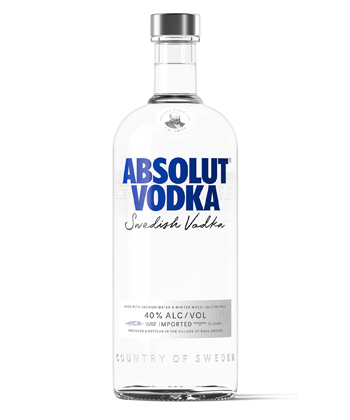
“I love to mix vodka cocktails using Absolut Vodka. Not just because they’ve long been supporters of ‘Love is Love,’ but also because of the winter wheat grown and distilled in Sweden that Absolut wisely decided upon. It’s always cheeky to think there’s no aroma or flavor to vodka — it’s cheekier to think about certain vodkas to play with ‘because’ of their flavors and aromas.” —Chris Hannah, owner and bartender, Jewel of the South, New Orleans
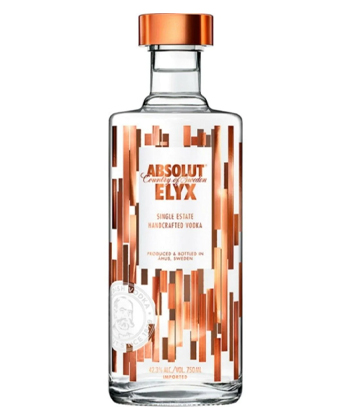
“It definitely depends on what style of cocktail I’m looking to create and what flavor elements I want to hero. However, I personally tend to prefer wheat-based vodkas. When I’m making a Martini, for example, I might look to choose a vodka like Absolut Elyx, made from a winter wheat, whose character and nuanced flavors stand up well in a drink like the Martini. If I’m ever looking to play around with fresher produce and brighter flavors, I’ve always loved to use Zubrowka Vodka, made from bison grass — it has super-earthy and almost peppery notes to it and pairs great with fresh apple!” —Liana Oster, bar director, NoMad London, London
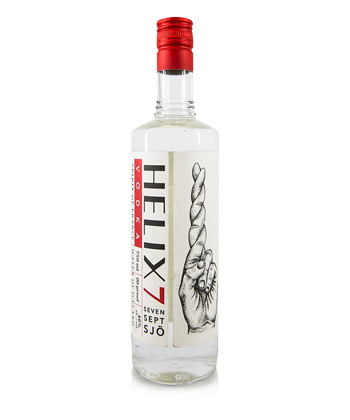
“I enjoy using Helix Vodka when mixing cocktails. It is versatile to give cocktails a crispy taste. It is also budget-friendly.” —Ivy Mix, co-founder, Speed Rack; co-owner, Leyenda and FIASCO! Wine and Spirits, Brooklyn
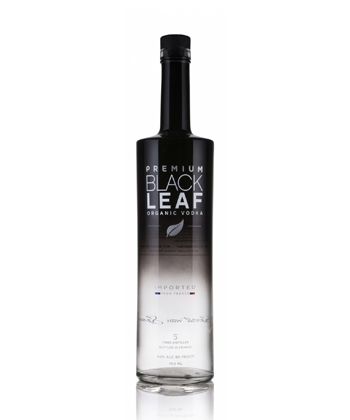
“Despite the majority of bartenders’ preferences, vodka can be used in a beverage program in a meaningful way. Vodka is meant to be clean, non-flavored, and odorless, and that is why it is a popular spirit. For me, I love making cocktails with Blackleaf Organic Vodka. Its clean palate is perfect for any cocktail! Blackleaf Organic Vodka is the first organic French vodka on the market — it is distilled from organic winter wheat in Cognac, France. Kevin Larkai is the owner and was born in Nigeria to Ghanaian parents, but currently resides in Washington, D.C. He worked in finance for many years and decided to follow his dreams to create his own vodka brand.” —Judy Elahi, bar director, 101 Hospitality, Washington, D.C.
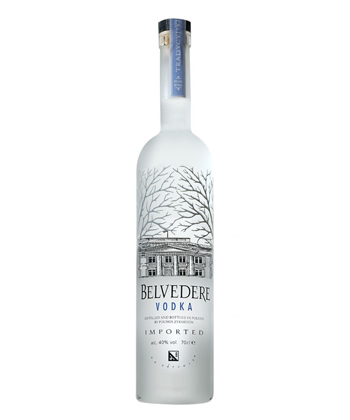
“For vodka cocktails, shaken or stirred, boozy or juicy, Belvedere. It is simultaneously rich and creamy, clean and crisp, sweet and spicy. All the depth and complexity of flavor is there; it mixes well with anything, but it’s one vodka I would drink neat or on a rock.” —Malcolm Knighten, bar director, Table and All Day Darling, Asheville, N.C.
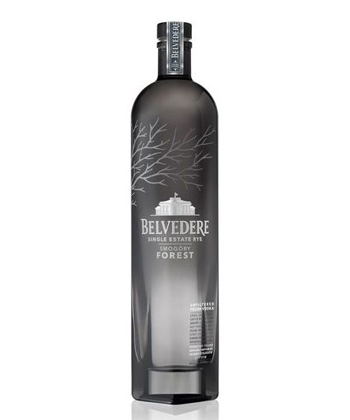
“Belvedere Smogóry Forest: At a time where bartenders are reaching for more terroir-driven vodkas, Smogóry shines through as a spirit that really highlights the flavors of the grains from which it was distilled. Sweet and full-bodied enough to rival any potato-based competitor with a grassy, herbal finish, Belvedere Smogóry makes a strong case for bartenders and spirits professionals to give vodka a second look.” —Harrison Snow, co-owner and beverage director, Lullaby, NYC
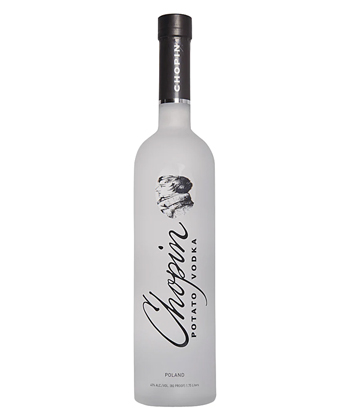
*“Chopin’s Potato Vodka, is to me, the best mixing vodka there is. The soft and smooth mouthfeel, combined with a robust body gained from the potato, makes this a perfect ally for any style of drink you want to make at home. It can stand its ground in any Martini variation and harmonize with a great variety of ingredients added to the mix. It has an unparalleled versatility, which makes sense if you think about how many ways the kitchen utilizes the potato in most cuisines around the world.” —Jan Brown, bar manager, Faccia a Faccia, Boston
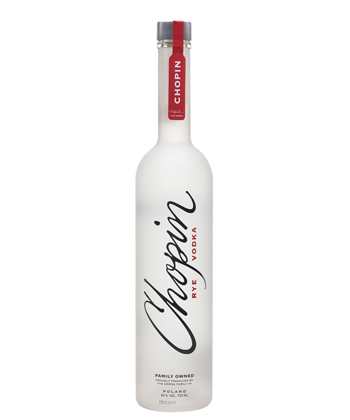
“Chopin Rye Vodka for Martinis and especially for Dirty Martinis. Chopin Rye Vodka has more spicy, black pepper notes and is more savory which itself makes a perfect base for a Dirty Martini.” —Nils Schabert, director of bars, Rosewood Miramar Beach, Montecito, Calif.
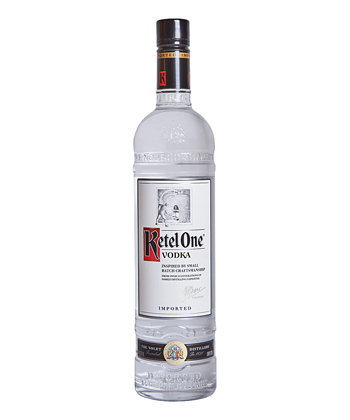
“When it comes to vodka, I love using Ketel One in my cocktails. Its smooth and soft textures pair well with most everything, from simple two-ingredient drinks to drinks with more complex items. Ketel One is made with non-GMO wheat and distilled in a copper pot, making for a light and easy drink, even for those that typically avoid vodka. Their flavored versions are a fun way to add an extra bit of flavor to Martinis and fruity summer-style drinks.” —Caitlin Lapinel, bar manager, Sushi-Rama, Denver
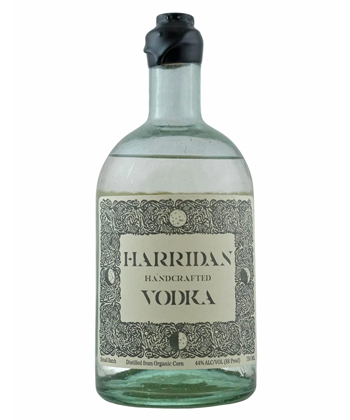
“Vodka cocktails have had a tough break over the past decade or so in the world of fancy bartending. As we all grow and mature in our spirits knowledge, it feels as though suddenly every bartender looks down-nose at any cocktail menu void of a recipe containing pulque, kumis, Baijiu or Tej. At points, vodka drinking seemed taboo in the mixology crowd and the products brutally found lacking in flavor, substance, and quality. However, as the pendulum swings (and it always does), we are watching vodka pioneers pop up who understand that the bar world is ready for vodka 2.0; a spirit class focused on elegance, origin and subtlety. At Brother Wolf, our Italian aperitivo cocktail bar in Knoxville, Tenn., we showcase a few of these pioneers when we find a vodka that endeavors to resist conformity and offers character. Brother Wolf is proud to partner with producers who defy stereotypes and are reshaping the category. At 88 proof, Harridan Vodka from New York holds its own in a Negroni cocktail. With a ripe fruit snap in the beginning, rounded off by a peppered spice finish, Harridan Vodka has no trouble competing with the bitter and sweet elements of this classic drink. And in keeping with the witchy vibes of the vodka made by and for bossy, belligerent women, we top this classic off with a spoonful of black Sambuca and garnish it with love. With that said, it feels almost wrong to call Harridan a vodka. At Brother Wolf, we believe that this is the direction this spirit is headed in providing dynamic character and terroir. We also respect the values and platform of this small company and are proud to show them on our back bar.” —Jessica “Rabbit” King, owner and operator, Brother Wolf and Osteria Stella, Knoxville, Tenn.
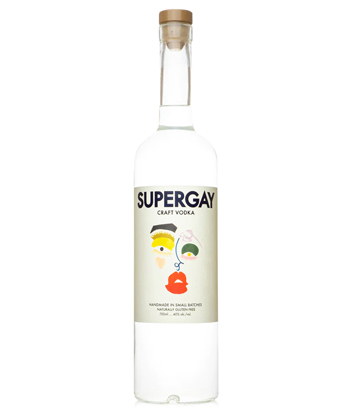
“Supergay Spirits ‘farm to disco’ vodka should absolutely be on your radar. It is distilled from corn in small batches and filtered through activated coconut charcoal with ethically sourced ingredients. It’s a fantastically approachable vodka with a silky and clean mouthfeel, making it perfect for all kinds of drinks from a Martini, to White Russians, to sipping on the rocks.” —Greg Coll, food and beverage director, Dawn Ranch, Guerneville, Calif.
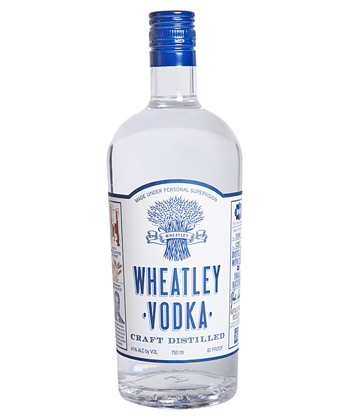
“Wheatley Vodka: A smooth blank canvas made with quality ingredients made at the Buffalo Trace Distillery.” —Adrian Juarez, bartender, Magari, Los Angeles
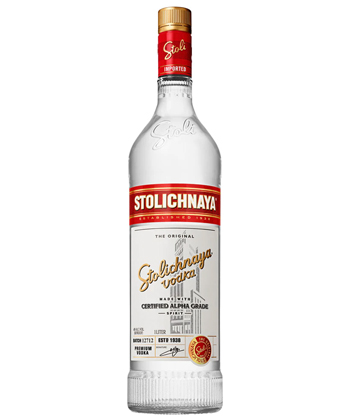
“I think that Stoli or Smirnoff 100 proof are the best vodkas to use for mixing cocktails. These vodkas are readily accessible and more on the neutral side regarding both body and flavor. They are not too oily and not too spicy, letting the other cocktail ingredients shine. We utilize both brands as the base vodkas for our house infusion program.” —Francis Kulaga, general manager and beverage director, Birch & Rye, San Francisco
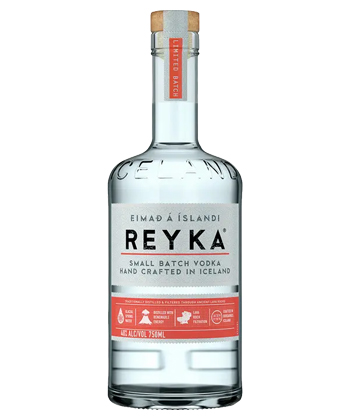
“I think vodka gets overlooked too often. The notion that ‘it shouldn’t taste like anything’ means that a lot of people just opt for the more expensive brands assuming that it means higher quality, which nowadays definitely isn’t true. The two boxes I always check when making a menu are: Is it affordable enough to be mixed in a standard cocktail, while simultaneously being perfectly delightful in a dry Martini? There are plenty of vodkas out there that qualify, but my go-to is almost always Reyka. It’s readily available to most consumers, easy-drinking, definitely not bank-breaking and, for a bonus, a sustainable company that is powered by geothermal energy.” —Katie Bruce, owner, The Buttery Bar, Brooklyn
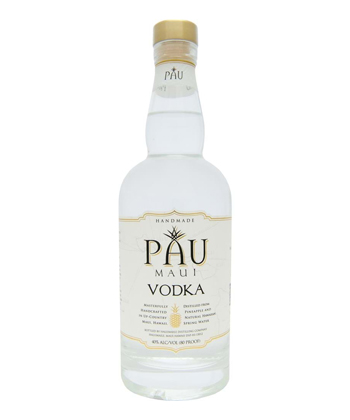
“I’ve been loving PAU Maui Vodka lately — this vodka is distilled in Hawaii and has some tropical notes as Maui Gold pineapple is the main ingredient (though it is very clean and crisp, not sweet). It’s sustainable, too, as it comes from an island with superb but limited resources; therefore it’s sensitive to the problems of pollution and the importance of living an Earth-friendly life. It’s a versatile spirit that’s amazing in a Martini or any fruit-based drink. It can be enjoyed simply with soda.” —Chetan Gangan Maverick, head mixologist, Indienne, Chicago
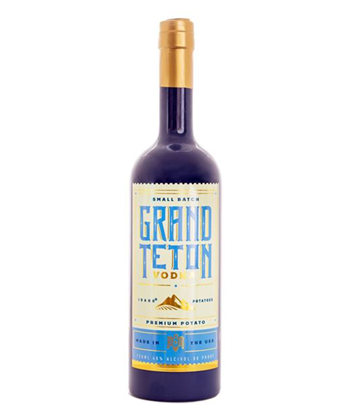
“Made from 100 percent local Idaho potatoes, Grand Teton Distillery is producing a very unique vodka. Made with versatility in mind, the master distiller wanted to have a flavorful vodka that can be enjoyed in many ways, including on the rocks with a twist of lemon, in a Martini, or my personal favorite, as the base of a cocktail. I think this vodka shines in certain cocktails such as a Paloma, Sunrise, or even a vodka sour, as the tasting notes can stand up to these flavors rather than getting lost like most vodkas. Grand Teton Vodka is cut with pure mountain water to really reflect where it is made, in the shadows of the Teton Mountain Range.” —Jim Waldrop, general manager, The Million Dollar Cowboy Bar, Jackson, Wyo.
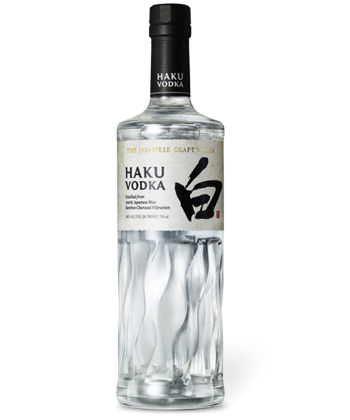
“In my opinion, the best vodka for mixing cocktails is Haku Vodka by the House of Suntory, made with 100 percent white rice, then blended and filtered through bamboo charcoal. Through this process, Haku preserves the delicately sweet rice flavor with silky texture that’s going to shine in most vodka cocktails, especially for a vodka Martini drinker. On the plus side, it’s easy to access Haku Vodka nowadays.” —Bobby Leonardo, head bartender, Wayla, NYC
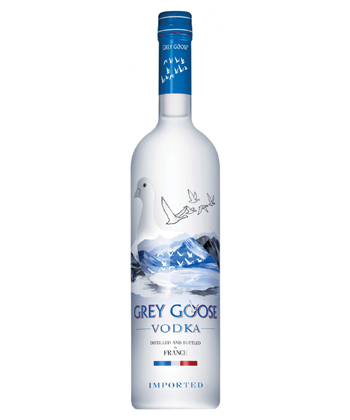
“It’s almost a cliché at this point but I regularly reach for Grey Goose when mixing a vodka-based cocktail. It is a crisp and clean vodka with enough citrus peel to add complexity while also offering a good base to let other flavors shine through.” —Will Patton, bar director, Hive Hospitality (JONT, Bresca, and the forthcoming Press Club), Washington, D.C.
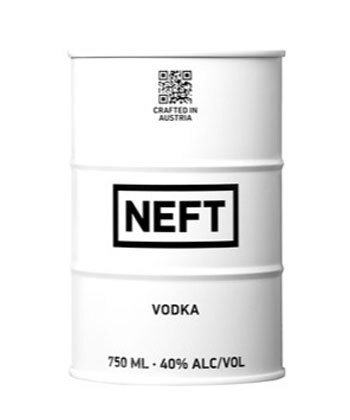
“NEFT is amazing for mixing cocktails as it helps push the senses. Starting with the unexpected barrel that catches the eye when crafting, to the pure taste that pours out, which comes from the superb Austrian water used in distillation. And its light and smooth character makes it easy to pair with just about any flavor when mixing cocktails.” —Brian Fernandez, beverage director, The Exhibition Room, Long Beach, Calif.
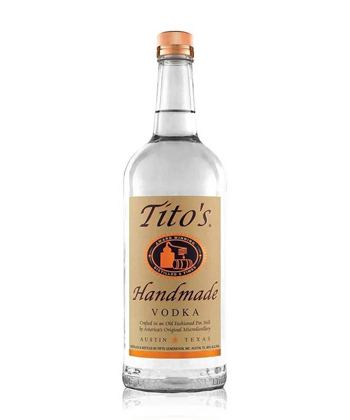
“Vodkas are fantastic spirits to incorporate into a cocktail recipe. By definition, vodka is tasteless and odorless, so the spirit can actually complement a variety of ingredients ranging from sweet and savory to herbaceous. Vodka serves as a foundational element for so many different types of flavor palates. Several vodkas work very well for crafting cocktails and actually add different characteristics based on what the vodka is made from. For a full-bodied cocktail, try Chopin, which is made from potatoes. This brand of vodka highlights herbaceous cocktails really well and I always tell my guests that it’s one of my favorites for a Bloody Mary. My other go-to vodka is Tito’s, which is one of the most popular on the market today. While so many spirits can come off as ‘overhyped’ at times, Tito’s truly lives up to its popularity. The brand deserves all of the accolades it has received. It is six times distilled and removes impurities, which allows the cocktail flavors to shine through. Tito’s is arguably the best mixing vodka on the market today, but it is also so clean and crisp that it can be used for straight cocktails as well. An ‘In & Out’ Tito’s Martini will make any evening an enjoyable one!” —Robert Taylor, lead mixologist, The Ritz-Carlton Pentagon City and Santé, Arlington, Va.
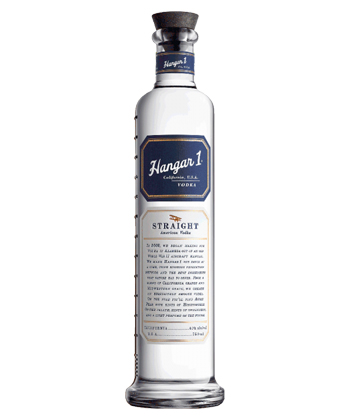
“The best vodka for mixing cocktails will be a good premium vodka, but not high end. I use Tito’s. It has a sharpness to it that stands out. Hangar 1 and Spring44 vodkas are very smooth — you taste the other components first with a vodka finish.” —Joy Daniel, beverage director, Favela Cubana, Calle Dao, Mareluna, and Erbaluce, NYC
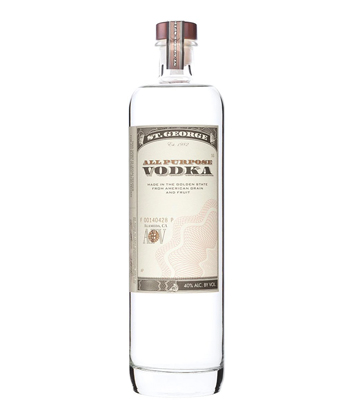
“I’m about to be sneaky here, but please hear me out; it will all make sense. St. George is an amazing distillery putting out some top of the line distillates that I’m proud to use in my bar program. Their All Purpose Vodka (hereafter referred to as ‘APV’) is no exception, and there is a reason for that: pears. APV is a blend of neutral grain spirit and high-proof pear distillate. The end product is plush, delicate, and subtly juicy on its own, but in a cocktail is cooperative enough to take on the more powerful ingredients being thrown into the fray. All-purpose indeed. Now, all this being said, I have a confession to make: Vodka isn’t my favorite ‘vodka’ for making drinks, eau de vie (hereafter referred to as ‘EDV’) is! There is an unestablished spectrum of unaged distillates with EDV and vodka at either end, and geists and high-quality flavored vodkas somewhere in the middle (those two are identical but differ only because of the choice that distillery makes to label it that way). The more you lean towards EDV, the more powerful the flavor is, and the closer you get to vodka, the more flavor you have stripped away. At the end of the day, I’d much rather use a spirit chock full of flavor as a building block than the spirit equivalent of negative space.” —Mark Mentzel, lead bartender, The Elk Room, Baltimore
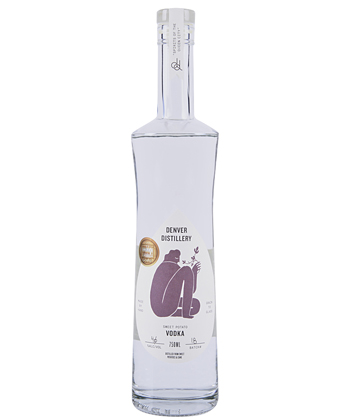
“The vodka we use the most for mixing at Point Easy is Denver Distillery’s Sweet Potato Vodka. It has much more character than most vodkas (not in an assertive way), and the sweet potato adds just a bit of roundness to it. Fantastic on its own as well, actually.” —Andy Bruch, co-owner, Point Easy, Denver
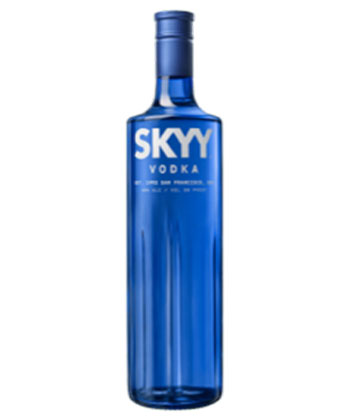
“I know it sounds old school, but Skyy Vodka and its flavors are still my go-to for cocktail development. I do have other favorites for specific cocktails, but when sitting down to develop something or to whip up a classic, this is the dependable old friend.” —Kai Wilson, beverage manager, Mercat a la Planxa, Chicago
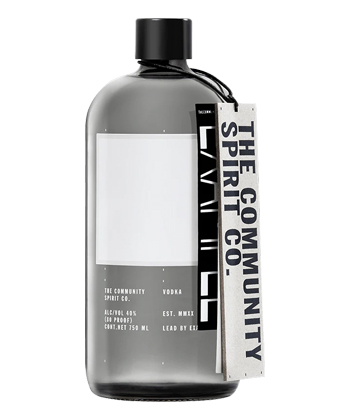
“When making vodka-based cocktails, I always try to use the least amount of ingredients so it doesn’t become muddled in flavor, which is why I love using The Community Spirit Vodka to make elaborate and simple cocktails. A lot of people say vodka is tasteless, but the subtle notes of corn and creamy mouthfeel from The Community Spirit Vodka change the entire flavor profile of a cocktail for the better! Not only do you get to enjoy an amazing vodka, but you also support the hospitality industry one vodka cocktail at a time.” —Christine Wiseman, beverage director, BarLab Hospitality Group, Miami
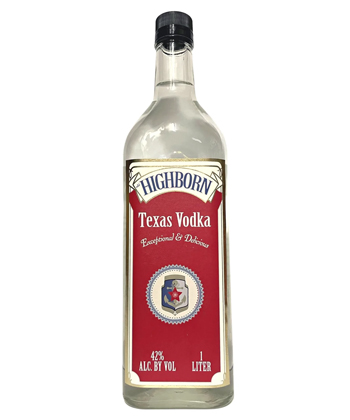
“Time to ditch Tito’s. Old Highborn is an excellent mixing vodka from Genius Liquids, which primarily makes gin but recently brought a vodka to market. It’s corn-based like Tito’s, but is slightly higher proofed (42 percent ABV versus Tito’s at 40 percent), which helps it stand up in cocktails better and makes for more flavorful drinks. It also has more character when sipping on its own and goes down easily. The best part: It won’t cost you any more than Tito’s.” —Noah Manskar, beverage director, Colonia Verde, Brooklyn
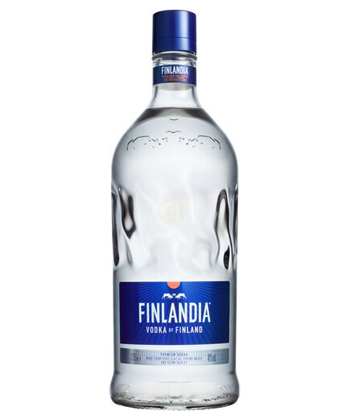
“Finlandia Vodka: There isn’t much that is more satisfying than a well-made, ice-cold, salty and savory Dirty Martini. We often think that it needs to be the most premium vodka that gets paired with our salty brine, but I don’t think that’s true. Finlandia Vodka is a perfect example of this! A readily available, easy-to- find, and easy-to-sip moderately priced vodka made from barley is such a wonderful choice. My brine of choice being Dirty Sue, paired with their specialty olives and Finland’s iconic vodka, hit every note I truly enjoy in a Dirty Martini. Extra olives, extra fun, please!” —Jesse Peterson, bartender, The Fishery and Simple Serve Inc., San Diego
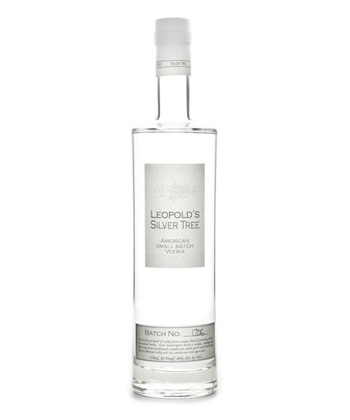
“At Bar Agricole, we wrestle with this question a lot. If one cares about agriculture and agricultural products like us, then vodka is a really difficult category to fulfill. Nearly all vodka in the world is made from industrially grown grain that is distilled to a very high proof so that it is entirely neutral of taste, aroma, and flavor. After it is filtered and proofed down to 40 percent ABV, there is very little trace of the original source material from whence it came. Most of the time, the consumer’s choice for their favorite vodka to use in cocktails comes down to branding and marketing because the base material is so inconsequential. But if I had to pick a vodka to get behind, I’d probably choose Todd Leopold’s Silver Tree Vodka. When compared to other vodka producers, Leopold Bros. is unique in that they really and truly make this vodka from the ground up. They do not buy bulk distillate from the Midwest and redistill it on-site. Instead, they source all the raw materials (potatoes, malted barley, and summer wheat) from Colorado growers, and they do all the fermentation themselves. The mash is then distilled on a small-by-comparison column still. The resulting distillate is only lightly filtered to retain texture and mouthfeel without resorting to additives such as glycerine as some very popular vodka brands often do. Todd’s Silver Tree vodka is a great example of how a neutral spirit can still have character despite the absence of flavor and aroma that defines the category.” —Craig Lane, head bartender, Bar Agricole, San Francisco
